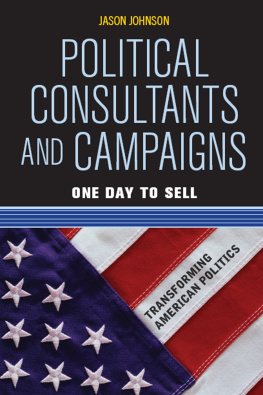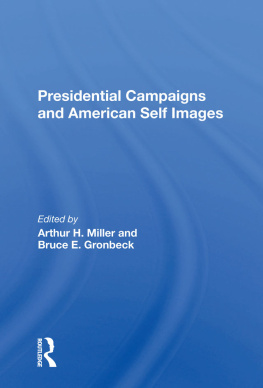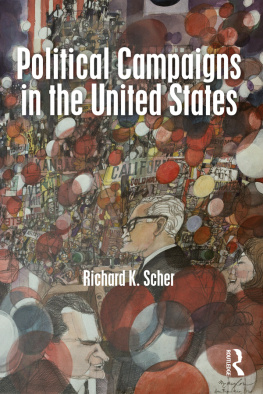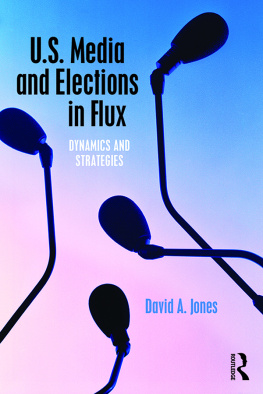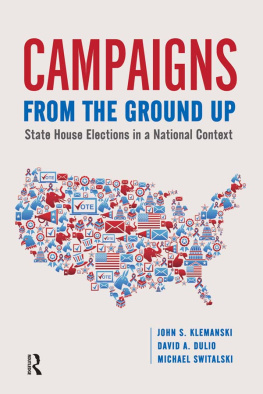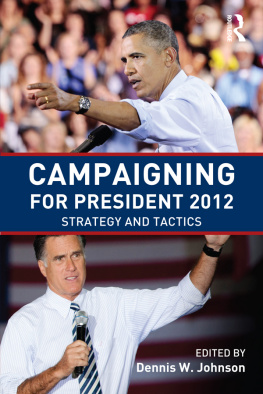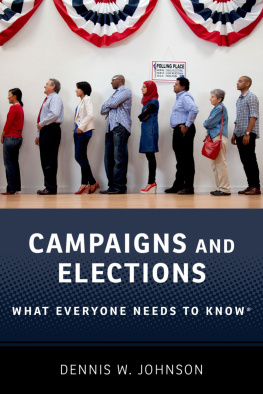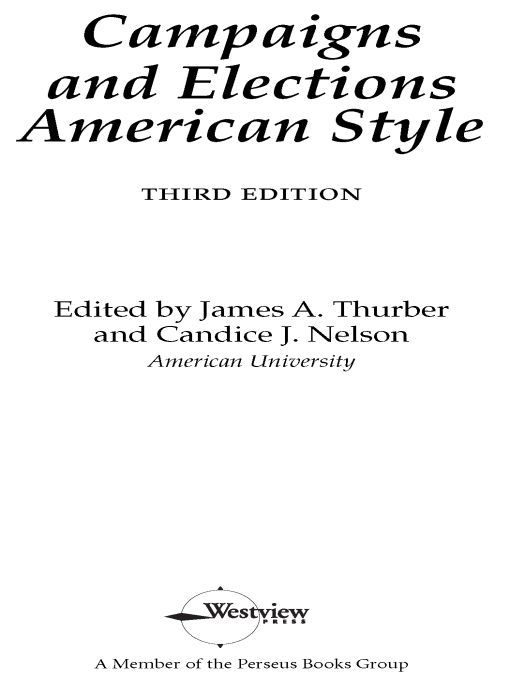Table of Contents
TRANSFORMING AMERICAN POLITICS
Lawrence C. Dodd, Series Editor
Dramatic changes in political institutions and behavior over the past three decades have underscored the dynamic nature of American politics, confronting political scientists with a new and pressing intellectual agenda. The pioneering work of early postwar scholars, while laying a firm empirical foundation for contemporary scholarship, failed to consider how American politics might change or to recognize the forces that would make fundamental change inevitable. In reassessing the static interpretations fostered by these classic studies, political scientists are now examining the underlying dynamics that generate transformational change.
Transforming American Politics brings together texts and monographs that address four closely related aspects of change. A first concern is documenting and explaining recent changes in American politicsin institutions, processes, behavior, and policymaking. A second is reinterpreting classic studies and theories to provide a more accurate perspective on postwar politics. The series looks at historical change to identify recurring patterns of political transformation within and across the distinctive eras of American politics. Last and perhaps most important, the series presents new theories and interpretations that explain the dynamic processes at work and thus clarify the direction of contemporary politics. All of the books focus on the central theme of transformationtransformation both in the conduct of American politics and in the way we study and understand its many aspects.
BOOKS IN THIS SERIES
Republican Ascendancy in Southern U.S. House Elections, Seth C. McKee
Campaigns and Elections American Style, Third Edition, edited by
James A. Thurber and Candice J. Nelson
Money in the House: Campaign Funds and Congressional Party Politics,
Marian Currinder
American Voter Turnout: An Institutional Approach, David Lee Hill
Revolving Gridlock, Second Edition, David W. Brady and Craig Volden
The Congressional Experience, Third Edition, David E. Price
The Parties Respond, Fourth Edition, edited by L. Sandy Maisel
Diverging Parties, Jeffrey M. Stonecash, Mark Brewer, and
Mack Mariani
Votes, Money, and the Clinton Impeachment, Irwin Morris
Class and Party in American Politics, Jeffrey M. Stonecash
Congress and the Decline of Public Trust, edited by Joseph Cooper
Public Opinion in America, Second Edition, James A. Stimson
Still Seeing Red, John Kenneth White
Masters of the House, edited by Roger H. Davidson,
Susan Webb Hammond, and Raymond W. Smock
Governing Partners, Russell L. Hanson
Governance and the Changing American States, David M. Hedge
The Collapse of the Democratic Presidential Majority,
David G. Lawrence
The Divided Democrats, William G. Mayer
Extraordinary Politics, Charles C. Euchner
The Irony of Reform, G. Calvin Mackenzie
Broken Contract, Stephen C. Craig
Young versus Old, Susan A. MacManus
The New American Politics, Bryan D. Jones
Bureaucratic Dynamics, B. Dan Wood and Richard W. Waterman
The Dynamics of American Politics, Lawrence C. Dodd and
Calvin Jillson
The Politics of Interest: Interest Groups Transformed,
edited by Mark P. Petracca
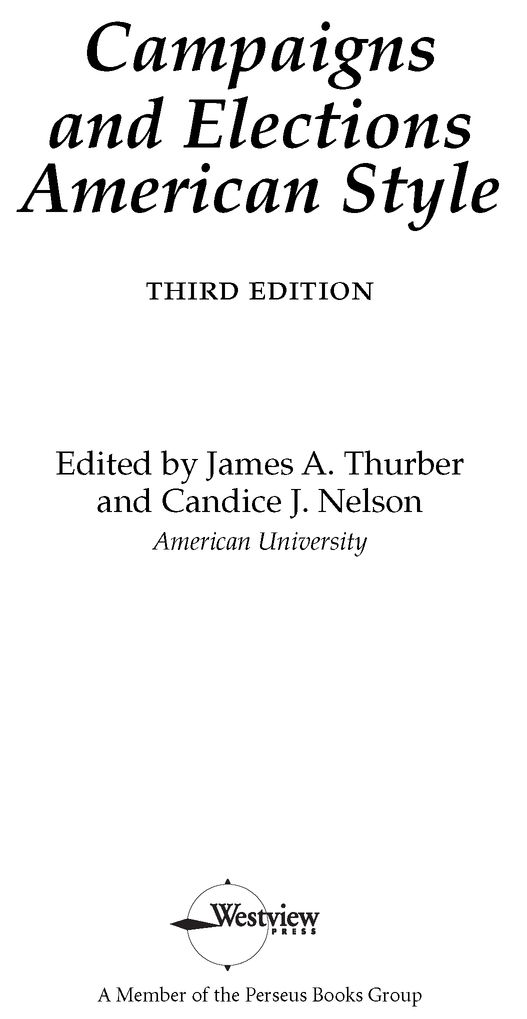
To my wife Claudia
And to my family Mark, Kathryn, Greg,
Tristan, Bryan, and Kelsey
JAT
To David, Kuniko,
Peter, and Michael
CJN
Acknowledgments
The rich lessons and knowledge from American Universitys Campaign Management Institute (CMI) was the genesis of the first edition of this book. CMI was started in 1981 by campaign professionals and academics to bring together academic and practical knowledge of campaigning. It is offered twice a year at the Center for Congressional and Presidential Studies (american.edu/ccps) at American University. It is an intense two-week hands-on learning experience organizing actual election campaigns. Students receive professional guidance and evaluation from campaign professionals, pollsters, media specialists, campaign strategists and managers, and academics.
We thank the thousands of students who have taken CMI and the dozens of campaign professionals who lectured in CMI for their insights and inspiration to write this book. All of the campaign professionals who contribute chapters to this book have spoken at CMI. Thanks to those authors and the many CMI speakers for sharing their invaluable practical knowledge and the strategy and tactics of winning campaigns in America. They have also been wonderful mentors to our students and alumni who are working in the campaign management field. We also thank the many readers of previous editions for their helpful comments and reactions that have helped us improve this edition.
Thanks for our colleagues at the Center for Congressional and Presidential Studies, Olga Gallardo and Alicia Prevost, who provided invaluable research assistance at various stages of the project. We have special thanks for the support of the Center and this project from William LeoGrande, Dean of the School of Public Affairs at American University.
We thank our friends at Perseus Books/Westview Press. Anthony Wahl, Annie Lenth, and Kelsey Mitchell deserve special appreciation for their encouragement and help in producing this edition.
Clearly this is a collective effort. We thank all the contributors for their chapters. We take full responsibility for any omissions or errors of fact and interpretation.
James A. Thurber
Candice J. Nelson
Understanding the Dynamics and the Transformation of American Campaigns
James A. Thurber
This book, a study of campaign management and elections, marries academic wisdom and the practical knowledge of professional political consultants, although the two worlds rarely overlap. Academics use explicit hypotheses and scientific methods for making systematic observations about campaigns and elections, whereas professionals draw generalizations based on direct experience. Campaign consultants test hypotheses by winning and losing elections. Both use theoretical perspectives about campaigns and voters, although one is academic and one practical. The common dimension to both worlds is the major changes that have occurred in the way campaigns are waged and elections won or lost in the last twenty years, as especially shown in the 2008 election campaign of President Barack Obama.
Academics use large data sets and systematically test hypotheses to make careful statements about voters and elections. They attempt to explain individual and collective political behavior and try to answer questions about who votes and why. When political scientists write about campaigns and how candidates get elected, their approach is based on scholarly analysis rather than experience (Thurber 1998; Thurber and Nelson 2000).
Campaign professionals also focus on who votes and why, but to develop a winning strategy to attract voters to their candidate. When they write about campaigns, it is often in the form of how-to-win manuals (Napolitan 1972; Shea 1996). They are hired activists who develop strategies and tactics to influence voters and election results (Thurber 2001; Thurber and Nelson 2000). They focus solely on how to win. Political scientists try to understand voters, candidates, elections, and the consequences of electoral battles for governing and developing public policy. Campaign professionals have knowledge gained from their previous campaigns. They know what works through their experience of winning or losing elections and are seasoned by their involvement with campaigning (Thurber and Nelson 2000).


